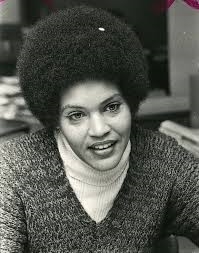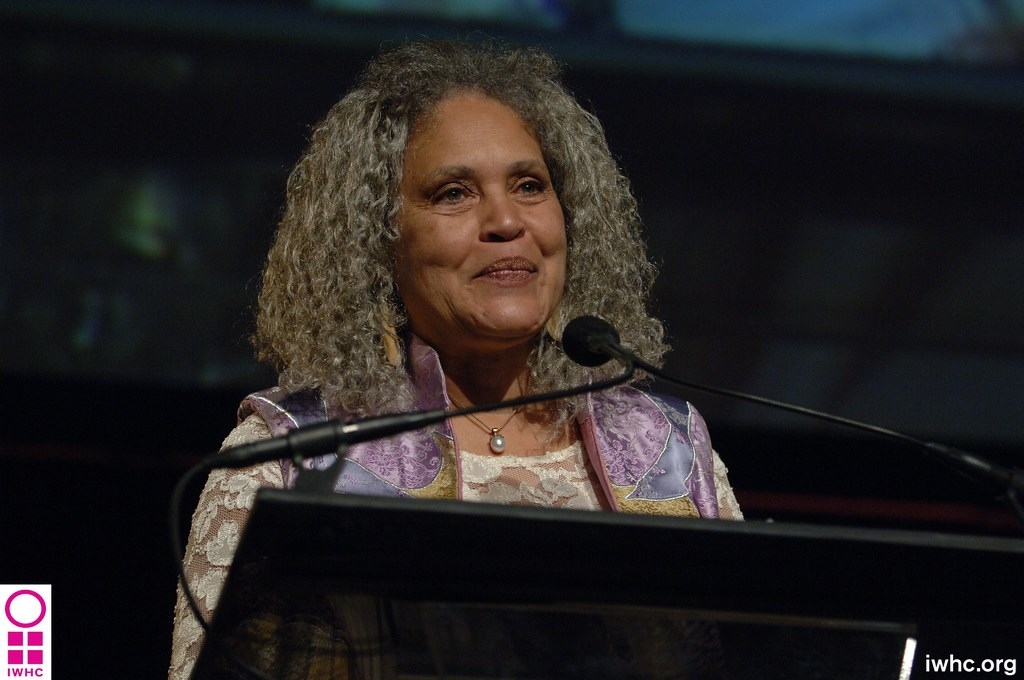Charlayne Hunter-Gault is a pioneering journalist and civil rights activist whose life and career have been marked by breaking barriers and championing equality. Known for her fearless reporting and her historic role in desegregating higher education in the American South, Hunter-Gault has made a profound impact on both the media landscape and the fight for racial justice.
Charlayne Hunter was born in Due West, South Carolina. Raised in the segregated South, she experienced the harsh realities of Jim Crow laws firsthand, but her family instilled in her a strong sense of pride, perseverance, and the belief in the power of education. As a young girl, Hunter excelled academically, and her aspirations led her toward becoming a journalist at an early age.
Charlayne Hunter-Gault was born on February 27, 1942, in Due West, South Carolina, to Col. Charles Shepherd Henry Hunter, Jr., a U.S. Army chaplain, and Althea Ruth Brown. Her interest in journalism began at age 12 after reading the comic strip Brenda Starr, Reporter. In 1955, a year after Brown v. Board of Education, she was the only Black student in her eighth-grade class at an Army school in Alaska, where her father was stationed. After her parents' divorce, Hunter moved to Atlanta with her mother and attended Turner High School, where she excelled academically and became editor-in-chief of the school newspaper.
 Charlayne Hunter Flikr
Charlayne Hunter Flikr
In 1958, members of the Atlanta Committee for Cooperative Action (ACCA) began to search for high-achieving African-American seniors who attended high schools in Atlanta. They were interested in starting the integration of white universities in Georgia. They were searching for the best students so that universities would have no reason to reject them other than race. Hunter, along with Hamilton Holmes were the two students selected by the committee to integrate Georgia State College (later Georgia State University) in Atlanta.
The university initially rejected the two on the grounds that there was no more room in the dorms for incoming freshmen who were required to live there. That fall, Hunter enrolled at Wayne University (later Wayne State University) where she received assistance from the Georgia tuition program on the basis that there were no black universities in the state who offered a journalism program. But, despite meeting the qualifications to transfer to the University of Georgia, she and Holmes were rejected every quarter, again due to the fact that there was no room for them in the dorms, but transfer students in similar situations were admitted. This led to court case Holmes v. Danner, in which the registrar of the university, Walter Danner, was the defendant. After winning the case, Holmes and Hunter became the first two African-American students to enroll in the University of Georgia on January 9, 1961.
This, however, was met with fierce resistance both from the university and from the local community. During her time at UGA, Hunter endured harassment, violent protests, and isolation. Rioters gathered outside her dormitory, hurling insults and threats, and at one point, the university even suspended her under the pretext of "safety concerns." Yet, Hunter refused to be intimidated. Supported by the legal efforts of civil rights lawyers like Constance Baker Motley and the NAACP, she was reinstated and went on to graduate in 1963 with a degree in journalism.
After her graduation, Hunter embarked on a successful career in journalism, where she consistently broke racial and gender barriers in an industry historically dominated by white men. She began her career at The New Yorker as a reporter, and in 1968, she joined The New York Times, becoming one of the first African American women to write for the prestigious newspaper. Her reporting focused on civil rights and social justice issues, giving a voice to marginalized communities and bringing attention to stories often ignored by the mainstream press.
In the 1970s, Hunter transitioned to television journalism, where she further expanded her influence. She joined PBS NewsHour (then known as The MacNeil/Lehrer Report) as the program’s first African American correspondent, covering stories on social, economic, and political issues that affected both the Black community and the wider public. Her work with PBS earned her numerous accolades, including two Peabody Awards and a national Emmy for her coverage of apartheid in South Africa.
In the 1990s, Hunter moved to National Public Radio (NPR) as the chief correspondent in Africa, where she reported on the continent's political, social, and economic changes. She later became the Johannesburg bureau chief for CNN, where she covered pivotal events in post-apartheid South Africa.
 FlikrCharlayne Hunter-Gault
FlikrCharlayne Hunter-Gault
Beyond journalism, Hunter-Gault has been a lifelong advocate for civil rights and equality. Her historic role in integrating the University of Georgia paved the way for future generations of African American students. In her memoir, In My Place (1992), she reflects on her experiences with segregation, discrimination, and the power of education as a tool for social change. She has often spoken about the intersection of journalism and activism, believing that her role as a journalist is not just to report the news but also to challenge injustices and give a voice to those who have been silenced.
Her contributions have been widely recognized. In 2005, she received the prestigious National Association of Black Journalists' Hall of Fame Award, and in 2017, the Journalism Institute's Lifetime Achievement Award. Her alma mater, the University of Georgia, has also honored her legacy by naming a building after her and Hamilton Holmes, symbolizing their impact on desegregation.
'Her Voice' is a film directed by Carletta S. Hurt and Sunnye C. Durham of IKAM Productions in which journalism student Gwendolyn struggles to choose a historical figure as the focus of a high school homework assignment. When her grandmother steps in to help, Gwendolyn takes an unexpected journey through history to meet Charlayne Hunter-Gault. As Gwendolyn learns about the adversities that Charlayne overcame, she discovers her family legacy at the University of Georgia and embraces her responsibility to continue the fight for equality.
'Her Voice' has been selected as a winner of the Eva Haller Women Transforming Media Award - Narrative at the MY HERO International Film Festival! Said Wendy Milette, Film Festival Director, “Your powerful film shines a light on the remarkable heroism of Charlayne Hunter-Gault in a unique and creative way, thank you and congratulations.”
Page created on 10/22/2024 10:55:46 AM
Last edited 3/6/2025 12:25:41 PM
